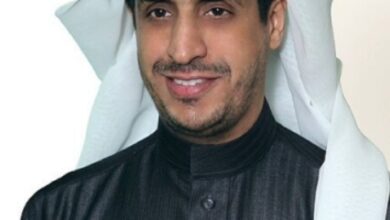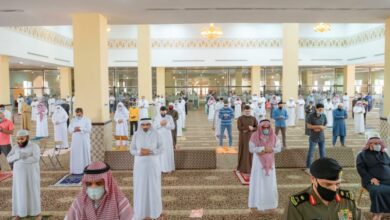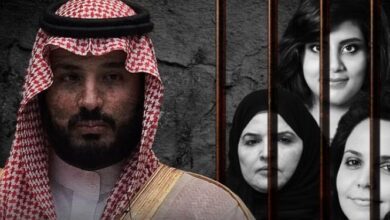Prisoner of conscience died in Saudi prisons due to torture

Sheikh Al-Muhtaseb Fahad Al-Qadhi died in the prisons of Saudi authorities on Tuesday, human rights and media sources revealed.
The sources said that Al-Qadhi has been detained since 2016 in Saudi prisons on the back of a secret advice letter addressed to the Royal Court was sentenced last month to six years in prison.
Al-Qadhi, a forensic researcher and an accountant for the religious police, was arrested in the Malaz criminal prison.
The sources said that in 2013, Sheikh al-Qadi sent a “message of advice” to the Minister of Education, entitled “Women with pups and horses.”
It is noteworthy that since Mohammed bin Salman became the Crown Prince, he began to absent the Commission for the Promotion of Virtue and Prevention of Vice, and introduced its place “Entertainment Authority” headed by Turki Al-Sheikh, which since its inception the Kingdom has witnessed events that were once taboo.
The Saudi regime is stepping up its controversial steps to plunge the Kingdom into suspicious entertainment in order to distract citizens from public causes and continue its subversive plots at home and abroad.
The Kingdom approved in 2016 a new organization of the Commission for the Promotion of Virtue and the Prevention of Vice, which reduces its powers, prevents it from arresting people, and requires that its members have scientific qualifications, in addition to good conduct.
Bin Salman is pushing a coup against the Kingdom’s religious and moral heritage by opening up to entertainment and hosting foreign teams with astronomical sums to provide a picture of the regime’s internal and external abuses.
In addition, the Saudis are trying to achieve a number of objectives with suspicious practices, the most important of which is to distract Saudi citizens from their repressive regime and crimes and to raise money from large financial revenues for parties and events, including pornography in the land of the Two Holy Mosques.
Entertainment and its various means seem to be a social need in any country, especially in a country that has been deprived of them for decades. However, it is remarkable in the State of the Two Holy Mosques to insist on moving from the severe province that characterized the Saudi society to uncontrolled openness, importing entertainment outside the context of the Arab and Islamic environment, as well as the Saudi environment, and the attempt to normalize it in society, may explain the campaigns of arrests condemning entertainment.
Observers believe that another major reason for the arrest of critics of entertainment is the influence of the president of the commission, Turki Al-Sheikh, one of Mohammed bin Salman’s closest and most loyal figures, who is known for his rude handling even of unknown journalists and photographers.





